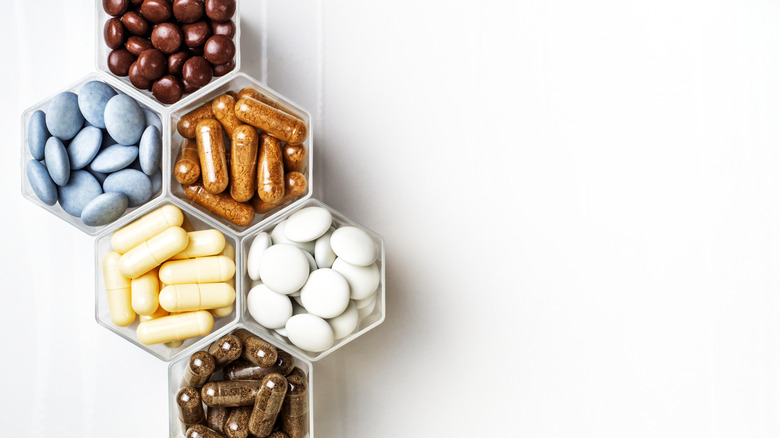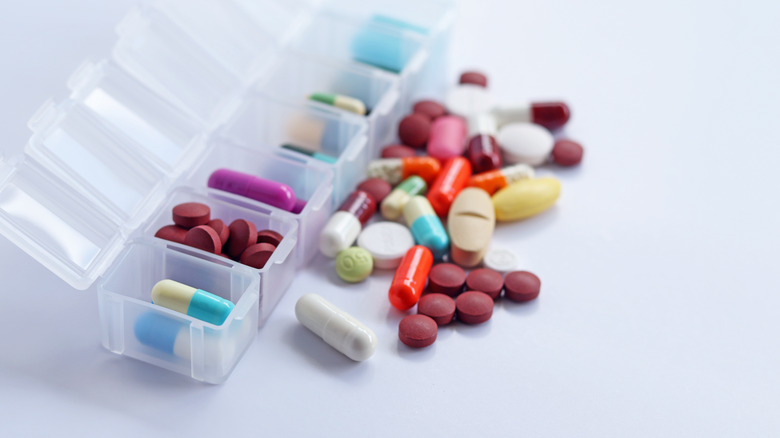How Alcohol Can Really Affect You If You're On Medication
It can be a bummer to turn down a glass of alcohol at a party, but if you are on certain medications, that is exactly what you need to do. More than 70% of American adults drink alcohol and plenty of people take medication, but alcohol and medication are not always friends. In fact, nearly half of medications have negative interactions with alcohol. Even more alarmingly, 42% of people who drink alcohol take one of these medications. This percentage increases to 78% among drinkers over the age of 65, according to the National Institutes of Health (NIH). Unfortunately, older people are especially vulnerable to experiencing severe interactions, since alcohol takes longer to exit their system (via University of Rochester Medical Center).
Some popular medications that may interact with alcohol include cardiovascular medications, painkillers, anxiety medications, sleeping pills, diabetes medications, antipsychotics, and antidepressants (per Drugs). The NIH adds that even some over-the-counter medications can interact with alcohol.
Interactions are stronger for some drugs than others; with some drugs, you may be able to drink alcohol in moderation, but with others, you must stay away from alcohol entirely. The best way to find out if you can drink alcohol while taking your medication is to ask your pharmacist.
This is what can happen if you drink alcohol while taking certain medications
With some medications, drinking alcohol can cause relatively mild side effects including lightheadedness, headaches, nausea, and vomiting. It can also cause lack of coordination, which may increase your risk of falls and serious injuries, which are a common cause of death among Americans (via CDC). Alcohol use with some drugs can increase your risk of infections and chronic diseases, such as diabetes (per Healthline). In addition, alcohol can amplify medication side effects and render certain medications useless, according to the NIH.
Drinking alcohol with some other medications may have even more severe side effects, such as cardiovascular problems, internal bleeding, fainting, seizures, and breathing difficulties.
Depending on the drug, interactions with alcohol can be nonexistent, mild, moderate, or potentially fatal. With any drug, it is important to educate yourself on any potential interactions, and ask your pharmacist if you are in any doubt.


